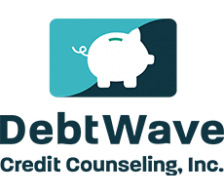From time to time, everyone makes mistakes with their money. They happen for many different reasons, and some of them are costlier than others. But one thing all financial mistakes have in common is that they are oftentimes avoidable with a little know-how and experience.
The secret?
Your financial situation at every stage of your life is the result of every financial decision you’ve made.
If you’re like most people, you’ve probably had very little training on how to avoid dangerous financial mistakes and are learning as you go. Identifying your errors now will help you avoid making them again in the future. Regardless of your income or financial situation, you can take control of your money.
Below, we’ve compiled a list of nine common and painful mistakes that anyone can make with their money. We’ve also included some info on how to avoid falling into these financial pitfalls.
9 Common Financial Mistakes to Avoid That Consumers Make
1. Buying a timeshare
A timeshare may seem like a good idea when you’re in the room with the salesperson. After all, it’s a nice vacation home in a pleasant location that you only pay for while you’re using it.
And if you like predictability in your vacations, timeshares sound great. But, timeshares are expensive.
- Timeshares don’t generate income
- Timeshares have little to no resale value
- And timeshares are extremely hard to get out of. So hard that many people decide that the only way to get out of them is foreclosure.
How to avoid it?
Resist the temptation to sign up for sales pitches.
The offers of free stuff or credit card points will end up costing you far more than your time.
If you’re already in one, accept that you will most likely lose money on the deal. Keep in mind that the sooner you free yourself from your timeshare, the sooner you stop the money leak.
2. Leasing a car
Generally, it’s not a sound financial decision to lease a car.
At the end of the lease term, usually three years, you either turn the car back into the dealer or buy the car. Both options are often fraught with extra fees.
Additionally, throughout your lease agreement, you are confined to your mileage budget, which some people exceed with just their daily commute.
At the end of the contract, you have nothing to show for all the payments you’ve made.
How to avoid it?
If you’re in the market for a new car, consider putting your down payment toward a dependable used car.
If you’re already in a lease, track your mileage and care for your car regularly to avoid extra fees when it comes time to return the vehicle.
3. Getting a payday loan
Payday loans are simple to obtain, but this easy money comes at a price.
Thanks to the outrageous typical APR on a payday loan, upwards of 400 percent, payday loans can lead to a vicious cycle of debt.
How to avoid it?
Build up an emergency fund equivalent to at least one month’s pay.
Start by saving a little of each paycheck, or earning money on the side, so that you build up your cushion as soon as possible.
In some cases, a pawnshop loan may be a viable alternative to a payday loan.
4. Cashing out your 401(k) early
Cashing out your 401(k) early may be the worst offender on our list.
First, you’ll be penalized immediately with a 10 percent early withdrawal fee.
Secondly, the money you receive from your payout is considered taxable income. So already, a considerable chunk of these funds is either gone or spoken for before it even gets to you.
Thirdly, and possibly the most significant cost of cashing out your 401(k) early, is that you will miss out on valuable interest growth. As a result, you’ll likely have far less money during your retirement years than you would if you’d left your money alone.
How to avoid it?
Focus on short-term savings when finances are sound and build up an emergency fund. Find alternative sources of funds like personal loans, or even whole-life insurance.
If you have no other option than to tap your 401(k), see if your plan offers a “hardship withdrawal.”
5. Not saving for retirement early on
If you work for an organization that offers a 401(k), not taking advantage of this perk is a costly financial mistake. You are missing out on tax-free investments, not to mention any contributions that your employer may provide.
A related mistake is not taking advantage of a Roth IRA to begin investing. The earlier you start saving, the less you need to invest every month to ensure a comfortable retirement for yourself.
How to avoid it?
If you have access to a 401(k) through your employer, take advantage of it as soon as possible.
For Roth IRAs, you can open an account when are you are 18 years old with as little as $1,000.
You can build up your opening deposit by setting up automatic deposits to a savings account.
And don’t forget – having the account in the first place isn’t enough – you must also select the funds to buy.
6. Paying only the minimum on credit cards
When you’re in a financial bind, it’s tempting to pay only the minimum payment on your credit cards.
For as little as $35, you buy yourself another month before your next payment is due.
But don’t do it! You will never pay off your full balance, due to the recurring interest charges if you continue to only make the minimum monthly payments.
How to avoid it?
Examine where your money is going every month and take action to cut unnecessary expenses. Earn money on the side in a way that works for you. Apply the savings from your eliminated expenses and extra earnings to your credit card bills.
When you’ve built yourself some breathing room, take some time to examine the habits that got you into consumer debt in the first place.
7. Lending money to friends/co-signing a loan
It’s understandable to want to help a loved one in need, but loans put a strain on relationships.
If you don’t have enough liquid assets to cover the balance of the loan in the case of default, or if you wouldn’t mind if the loan was never repaid, it’s best not to cosign or lend money.
Once you sign, the debt is yours, as is the hit to your credit score.
How to avoid it?
Be honest with your loved one who is in need. Let them know that your financial situation isn’t as robust as they may think it is.
Advise them on improving or rebuilding their credit to avoid needing a co-signer.
8. Deferring a student loan
Deferring student loans temporarily suspends payments. Interest, meanwhile, continues to accumulate.
For example, let’s say you have $50,000 worth of debt in the form of student loans and you’re paying 7 percent APR interest on that loan. Each month you defer your payment, your balance will increase by $300.
If you defer payments for an entire year, you’ve added $3,500 to your total debt!
Having excessive student loan debt is particularly dangerous for other reasons too.
Missed payments can lead to garnished wages, withheld tax returns, and ruined credit. Also, student loans cannot be discharged in most bankruptcy cases.
How to avoid it?
Research your repayment and consolidation options. Only defer your student loans if you are experiencing severe financial hardship. Another option is to consult with a third-party loan pro like Docupop* for guidance on dealing with a problematic student loan.
*PS This is an affiliate partner, which means if you sign up, DebtWave Credit Counseling may get something in return. Thanks.
9. Not having an emergency fund
Without an emergency fund, when unexpected expenses pop up, (and they always do), you’ll be forced to borrow to cover the cost. Usually, that amount goes to a high-interest credit card, priming you to enter a cycle of debt.
How to avoid it?
Many experts recommend having at least six months of living expenses in your emergency fund. If that amount is too daunting, choose a more attainable goal like $1,000.
Have a small portion of your paycheck automatically deposit a sum in a dedicated savings account. Even $50 a month adds up over time. And when you need to use it, pay yourself back as soon as possible.
What’s the greatest financial mistake you’ve made? Did you learn a lesson the first time? Or did you repeat the same financial mistake? Share with us in the comments!


